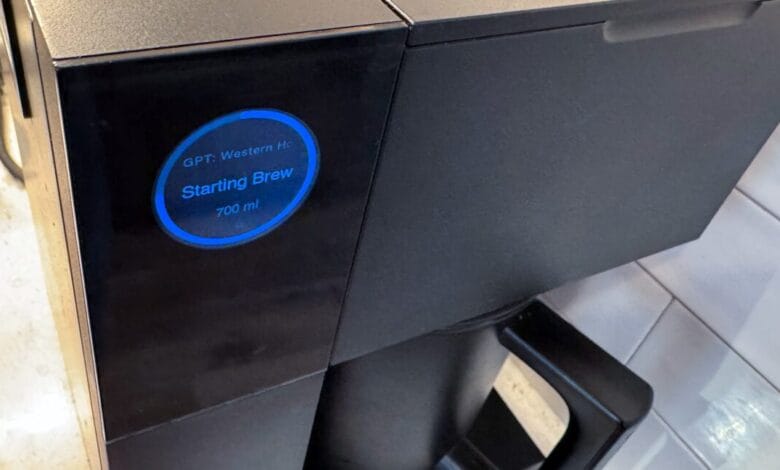Hackers Use AI to Revolutionize Fancy Coffee Makers

▼ Summary
– The author uses generative AI to create coffee recipes for the Fellow Aiden, an automated pour-over coffee maker, simplifying the brewing process.
– While humans can make great coffee manually, AI-generated recipes help avoid trial and error with new beans or techniques, saving time and resources.
– The author was initially hesitant about using generative AI personally but found value in it for coffee brewing, sparking curiosity about how the technology works.
– Brandon Dixon, an AI strategist and coffee enthusiast, considered leaving his career to start a roastery but concluded not every passion needs to become a business.
– The article highlights how AI can assist in niche hobbies like coffee brewing, blending technology with personal interests for practical benefits.
Coffee enthusiasts are discovering how AI can elevate their brewing game, with tech-savvy baristas leveraging machine learning to perfect specialty pour-overs. What once required years of hands-on experience can now be approximated through clever programming and data analysis, though purists argue nothing replaces human intuition.
Take the Fellow Aiden, a sleek automated pour-over system that’s become a playground for hackers and coffee nerds alike. By feeding it recipes generated through large language models, users can bypass trial-and-error brewing to achieve surprisingly nuanced results. While traditionalists might scoff at the idea, even seasoned baristas admit dialing in new beans or methods often wastes time and expensive coffee.
The intersection of AI and coffee craftsmanship raises interesting questions. Brandon Dixon, a Microsoft AI strategist and former aspiring roaster, reflects on the balance between technology and artistry. His conclusion? Some passions thrive best as hobbies rather than commercial ventures. Still, for those curious about extraction variables—bean origin, roast profile, or agitation techniques—AI offers a shortcut to baseline competence.
What makes this development compelling isn’t just the novelty of algorithmically optimized coffee. It’s how open-source collaboration transforms standalone gadgets into customizable tools. Early adopters share tweaks via APIs, creating a feedback loop where each brew refines the model’s suggestions. Skeptics rightly point out that no bot can replicate the tactile wisdom of a human hand, but as a starting point, it’s hard to argue with consistent, repeatable results.
Whether this signals a future where every kitchen appliance runs on machine learning remains to be seen. For now, it’s a fascinating case study in how niche communities repurpose emerging tech—one meticulously measured gram of coffee grounds at a time.
(Source: Ars Technica)